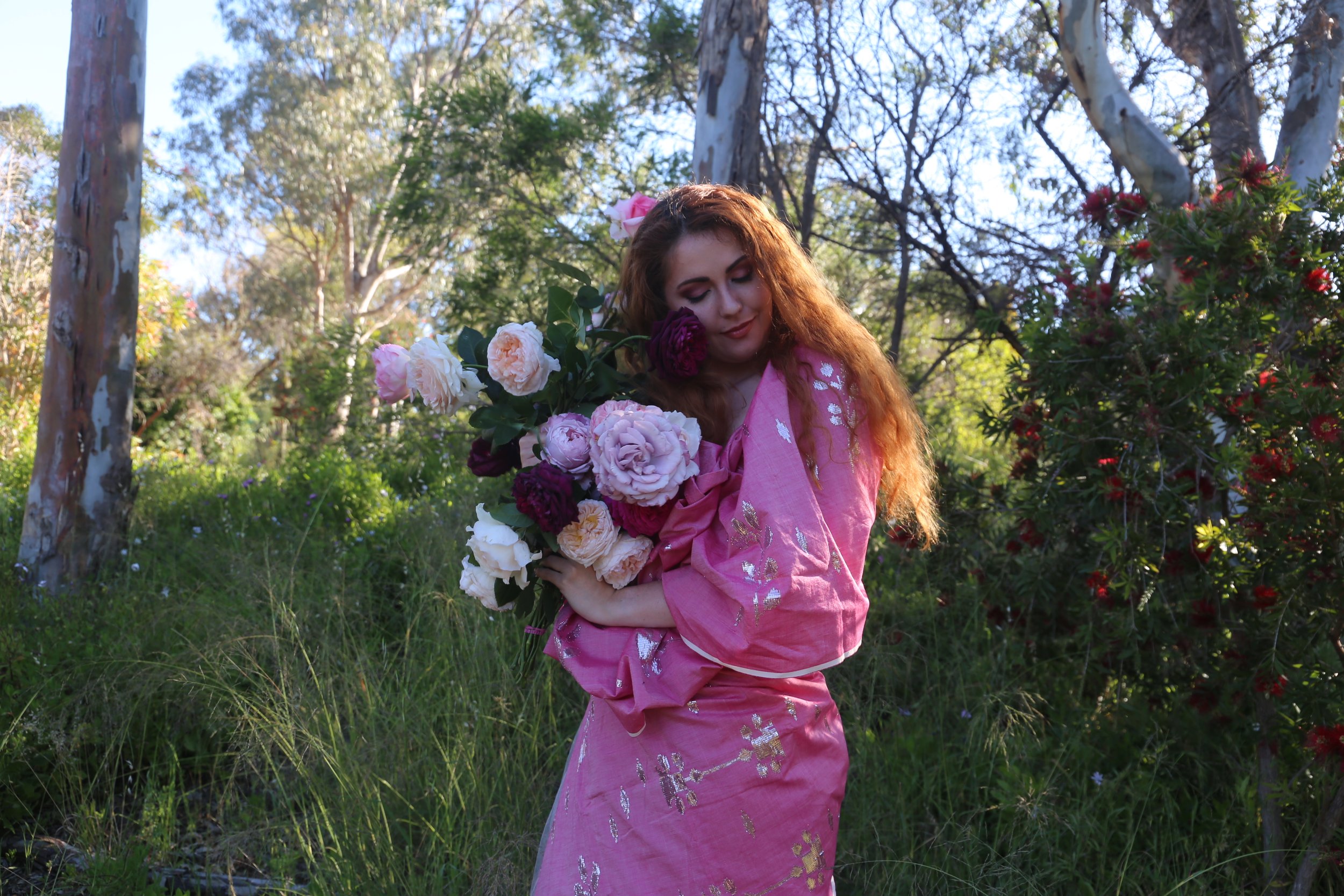Concept of sustainability in fashion is built on slow and local production, recycling and reuse. These main principles already exist in traditional crafts. EFWA International project Buya Subi will be starting January 2026 to December 2030 focusing on women 's empowerment and promotion of sustainable fashion and handmade traditional textiles. It also will support developing a traditional craft based green economy for fostering inclusive, resilient and sustainable development. Natural fibre based traditional hand-woven textiles in Indonesia's Central Sulawesi region based on locally sourced raw materials reflect the centuries long relationship between people and their environment.
UNESCO has recognized traditional knowledge of craftsmanship an intangible heritage that needs to be safeguarded (UNESCO, 2017) and through the SDGs recognize opportunities for sustainable livelihood through cultural tourism, the role of traditional craft sector in achieving SDGs related to women empowerment, reducing inequality, increasing access to decent work, and strengthening sustainable production and consumption.
Model - Caitlin Gerken , Photography-Zuhal Kuvan-Mills
EFWA's BUYA SUBI project aims to achieve SDG goals 5, 8 and 17 while collaborating with the Central Sulawesi Government, Tourism Office, International Networks, EFWA Designers Team as a four year pilot project.
EFWA Project is set to provide Promotion, education, investment and cultural awareness to revitalize traditional weaving in Donggala artisanal textiles and safeguard their future. Cheap fast fashion textiles like polyester not only impact the environment with toxic production methods but also impact on traditional handmade textiles. Slow production rate to compete with fast fashion, skilled artisans unable to pass their traditional craft to next generations because of low-income generation from handmade textiles compared to fast fashion synthetic fabrics. said Founder and Director of EFWA Dr Zuhal Kuvan-Mills
Traditional Donggala textiles are disappearing due to dominance of fast fashion, globalization, economic pressures on local artisans, and a disconnect from traditional craft techniques, threatening unique cultural heritage and ecological wisdom.
The economic and cultural significance of traditional Textiles in Central Sulawesi represents invaluable material and intangible heritages, bestowing people with a sense of identity and continuity through time. Unfortunately, like most textile traditions around the world, the loss of these ancient knowledge and crafts began a downward spiral of their disappearance. The loss of Donggala's Woven fabric also meant the loss of unique cultural traditions, as many of them were deeply intertwined with local customs, stories and identities. To ensure the survival of these centuries of traditional craft, it’s crucial to create supportive frameworks that protect artisans and promote the value of their work in contemporary society.
Model - Charli Parkinsonn, Photography- Simon Lau
EFWA is a proud member of the United Nations Fashion and Lifestyle Network. The Network advocates for transparent, inclusive, and transformative engagement among global stakeholders. It enables collaboration across industries and with the United Nations system, accelerates innovation and knowledge exchange, and promotes members who are advancing sustainable development through impactful solutions.
Further Information about EFWA's Buya Subi Project visit:
https://sdgs.un.org/partnerships/eco-fashion-week-australia
About the Network:
The United Nations Fashion and Lifestyle Network, an online platform hosted by the United Nations (UN), plays a key role in advancing the Sustainable Development Goals (SDGs) by connecting industry stakeholders, media, governments, and UN entities. Recognizing the fashion and lifestyle industries' profound environmental, economic, and societal influence, the UN Fashion and Lifestyle Network actively advocates for transparent, inclusive, and transformative engagement among global stakeholders. The Network enables collaboration among industries and the UN system and accelerates innovation, knowledge sharing, and promotes members who are driving a positive impact on sustainable development The United Nations Fashion and Lifestyle Network is a collaborative initiative of the United Nations Office for Partnerships, the Fashion Impact Fund - a program of PVBLIC Foundation, and the United Nations Department of Economic and Social Affairs. The United Nations Industrial Development Organization (UNIDO) is a supporting partner of the Network.
Official website: sdgs.un.org/partnerships/action-networks/fashion-and-lifestyle-network -
About EFWA:
International Eco-Fashion Week Australia (EFWA) began in 2017 in Perth, Western Australia and was founded by Zuhal Kuvan-Mills, artist, designer of Green Embassy, Australia´s first internationally recognised organic fashion label. The event draws like-minded fashion designers and speakers from around the world while advocating and promoting sustainability in fashion industry and environmental conservation. In 2018 EFWA expands to two Australian states. Following Covid break event returned with a month-long community Sustainable Fashion festival in WA 2024, In 2025 International conceptual Fashion Art exhibitions and Eco Fashion Runway Shows took place in Florence Italy. Currently working on four years project to preserve endangered traditional textiles of Central Sulawesi region.
Model - Caitlin Gerken , Photography-Zuhal Kuvan-Mills




